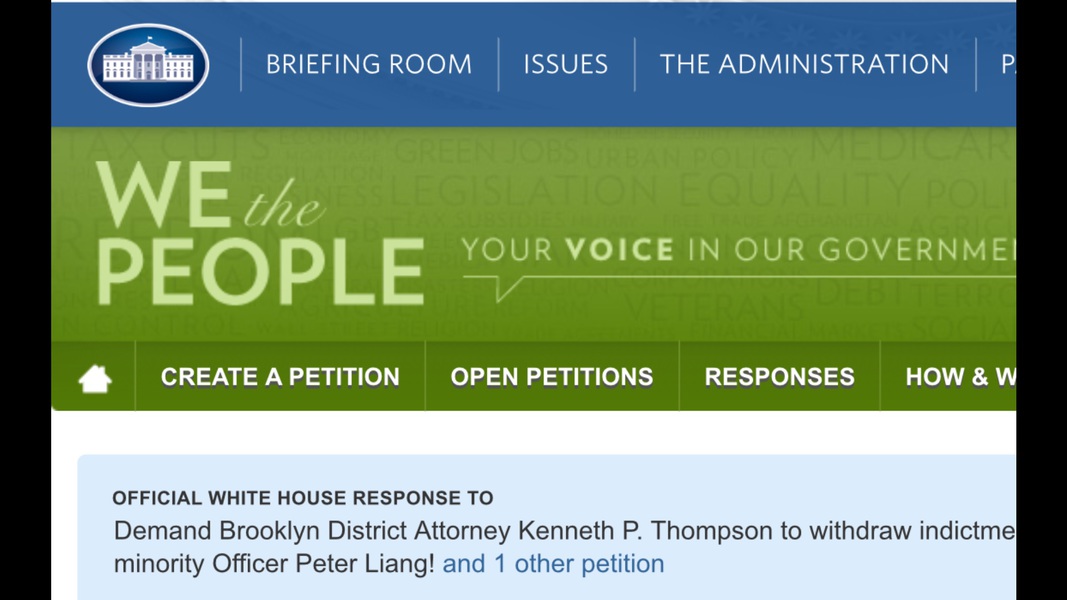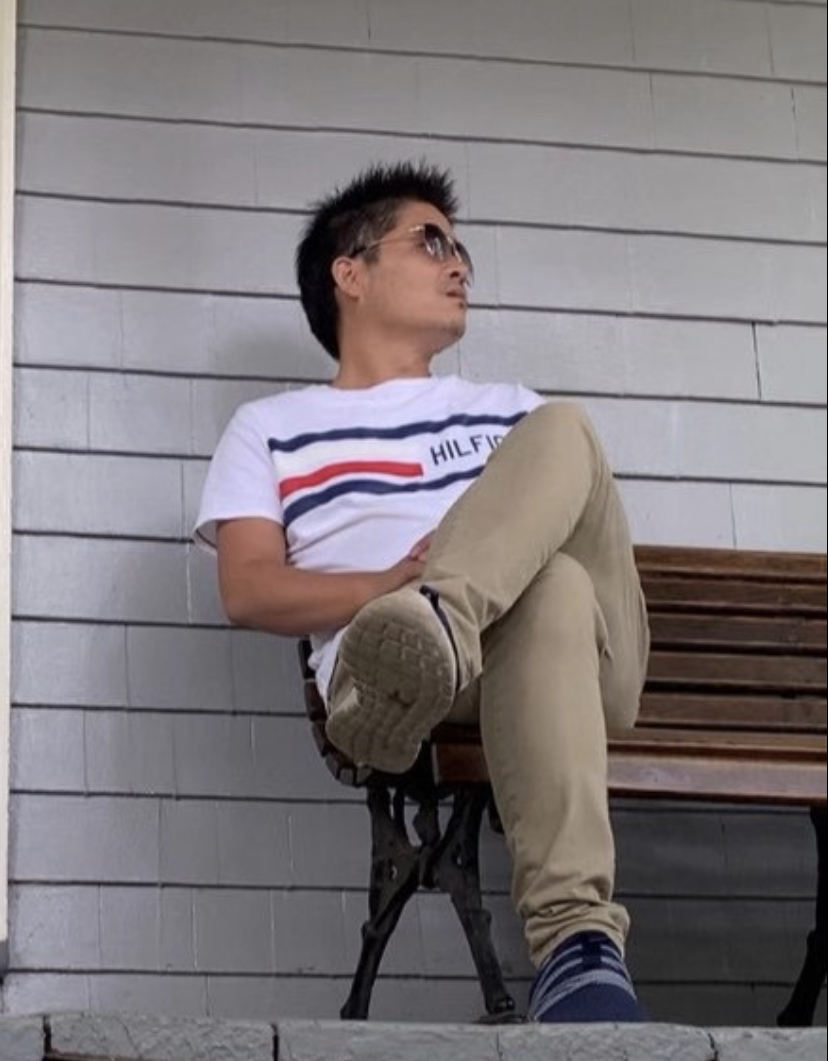奧巴马白宫对梁警官案诉请愿的回复
纽约代伟-102179 02/21 7034
A Response to Your Petition on the Indictment of Officer Peter Liang
Thank you for your petition regarding New York Police Department Officer Peter Liang and the shooting death of Akai Gurley.
The White House has no role in the decision of a state or local prosecutor to prosecute or not prosecute a case, and so we are not in a position to address the specific request of the petition. The local entities -- in this case, the District Attorney's office and the New York Police Department -- will be the best source for information on this matter.
With that said, we also want to share some information about the work that we're doing to build safer, stronger communities across our country.
In too many parts of our country, there is a deep distrust between communities of color and the law enforcement that is obligated to serve and protect them. And events over the past few months -- in cities and communities such as Ferguson, Staten Island, Cleveland, and Baltimore -- have brought both national and international attention to this problem.
As Attorney General Loretta Lynch said in May:
The issue of trust between and among law enforcement officers and the communities we serve is the issue of our times... Every city deserves an outstanding, world-class police force that works alongside local residents to protect public safety. And every officer deserves the tools, training, and support they need to do their jobs as safely and effectively as possible.
Our law enforcement officers have difficult and often-dangerous jobs, and we can never forget the sacrifices they make to keep our streets safe, our communities strong, and our people protected. We have heard from leaders of both law enforcement and communities that everyone is safer and better off when there is a relationship of trust and mutual respect between police and those they serve and protect -- which is why this Administration is working with cities and communities across America on initiatives and policies to improve those relationships.
Last December, President Obama launched the Task Force on 21st Century Policing -- a group of law enforcement experts, academia, youth activists, community leaders, and civil rights leaders focused on building strong and collaborative community-police relationships. Task Force members talked with community members, law enforcement officers, technical advisors, leaders of grassroots movements, and many others.
In May, the Task Force released its final report laying out best practices and recommendations for improving community and law enforcement relations. These recommendations include providing opportunities for more training for police at all levels, new initiatives to increase transparency and accountability, putting policies in place that prioritize de-escalation and avoid provocative tactics, and improving the safety and wellness of our law enforcement officers.
As the President explained when he recently spoke in Camden, New Jersey, the Task Force report lays out concrete proposals that every community in America can implement to rebuild trust and help law enforcement. But for these proposals to have an impact, the approximately 18,000 state and local law enforcement agencies throughout the country must put them into practice. We are committed to using the tools available to the federal government to support the great work that's happening at the local level where cities are already responding to these recommendations -- and to encourage others to follow their lead. As one example, we've launched a Police Data Initiative that is working with nearly two dozen innovative jurisdictions who are using data to strengthen their work and are making themselves accountable by sharing it with the public.
In addition, the President has called for expanded use of body-worn cameras; he has asked Congress to provide financial support for state and local acquisition of cameras and related technology through the Administration's fiscal year 2016 budget; the Department of Justice has released an approximately $20 million body-worn camera solicitation; and the Department of Justice has created a body-worn camera toolkit to help jurisdictions institute appropriate polices.
And the President has taken steps through the recommendations of the Law Enforcement Equipment Working Group, which has now completed an extensive review of federal programs that support the transfer of equipment to state, local and tribal law enforcement agencies. There is now a unified list of prohibited equipment that may not be acquired under any of the various programs, and a unified list of equipment that law enforcement may acquire only in accordance with new and more rigorous controls. On the basis of that review, the Administration also put in place a series of measures to enhance accountability, increase transparency, and better serve the needs of law enforcement and local communities.
The steps we've taken so far -- working with federal, state, and local law enforcement and civil rights advocates -- represent critical progress, but solving the problem will require more than these recommendations. It will require everyone understanding how important and significant this problem is -- and it will require everyone doing their part to fix it.
The President firmly believes that these goals are achievable and that "[i]f our society really wanted to solve the problem, we could -- it's just that it would require everybody saying, 'This is important, this is significant.'"
Again, thank you for signing this petition and speaking out -- and we will keep working to make sure that America's justice system, in each and every community, is truly just.


